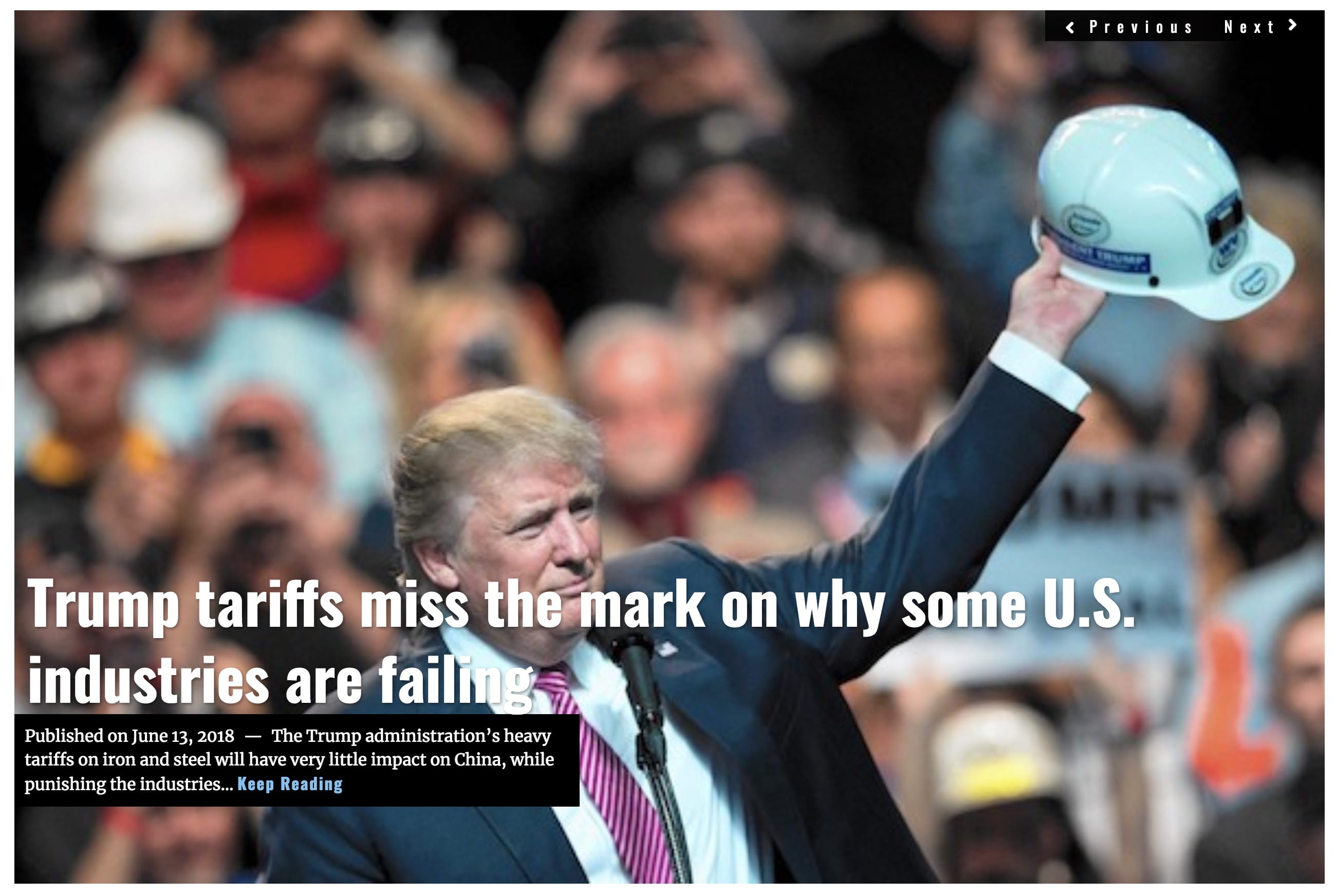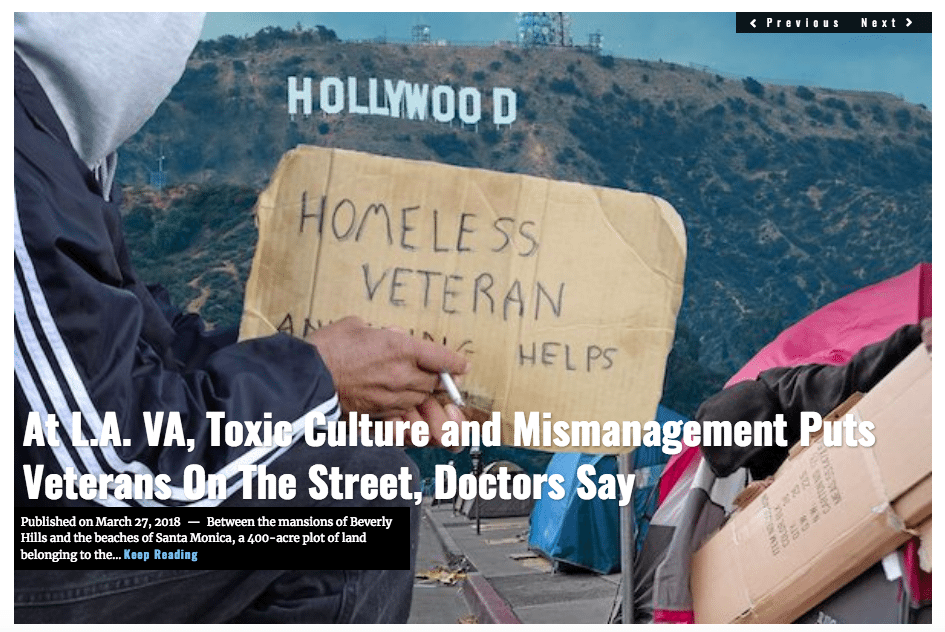Exploitative behavior targeting veterans is a symptom of a housing market increasingly weighed down with risky loans.
Effective July 1st, Freedom Mortgage, one of the largest U.S. home lenders, will be unable to make loans insured by the Department of Veterans Affairs.
This restriction is part of a crack down on “loan churning,” a practice of convincing veterans to refinance by barraging them with mortgage-refinance solicitations. This predatory behavior includes tried-and-true scams like using teaser rates and zero-down offers to tempt veterans into variable rate mortgages, as well as more creative ploys like disguising marketing materials to make them appear to be communications from the Department of Defense.
Freedom Mortgage is a nonbank lender, a.k.a. an independent mortgage company, that can lend funds with an added margin for profit because it has its own source of funds and is not a bank.
Before the mortgage meltdown, nonbank lenders comprised just 19% of the U.S. mortgage market in 2007. However, just over ten years later, these self-styled lenders now make up over half of U.S. home loans. The reason for this expansion is that nonbanks are not subject to the array of regulations issued by the federal government and the Federal Reserve in the aftermath of the financial crisis. They are instead regulated at the state level.
Wall Street is also getting in on the action, funneling $345 billion to nonbanks between 2010 and 2017.
Nonbanks like Freedom Mortgage rely on U.S. taxpayers for 80% of their mortgages through Ginnie Mae — a government-owned company established in 1968 to help people afford home ownership. Ginnie Mae issues mortgage backed securities as bonds to the market, which investors can then purchase. Then Ginnie Mae takes the money invested and loans it to businesses like Freedom Mortgage. Freedom Mortgage can issue mortgages, which are backed through Ginnie Mae with, unlike similar mortgages issued by Fannie Mae and Freddie Mac, the “full faith and credit of the United States.”
This means that U.S. taxpayers would be on the hook to pay off the borrowers’ debt in the event of massive default rates.

“We have depended on sheer luck,” said then Ginnie Mae President Ted Tozer when describing Ginnie Mae operations at a business summit. “Luck that the economy does not fall into recession and increase mortgage delinquencies. Luck that our independent mortgage bankers remain able to access their lines of credit. And luck that nothing critical falls through the cracks…”
However, there is a layer of protection. Borrowers are obliged to purchase insurance from the VA and the Federal Housing Authority (FHA) to cover potential defaults. However, in the event of a major crisis, Ginnie Mae would need to intervene, because the FHA’s capital reserves are only around $25.6 billion, equivalent to 2.09% of the loans they have made.
These loans only comprised 10% of the Mortgage Market in 2008, and today Ginnie Mae’s mortgage backed securities are approaching $2 trillion.
The FHA was administered by Acting Commissioner Dana Wade until last month. Late in April, she testified in a hearing before the U.S. House of Representatives, and warned of “certain trends and indicators of potential defaults.” She warned of increasing mortgage delinquency among FHA-insured borrowers, increases in the percentage of borrowers spending over 50% of their income on their mortgages, and increasing levels of debt for these borrowers, all of which are outlined in a March report by the FHA.
According to the American Enterprise Institute, the percentage of people making a loan at the time of home purchase with a debt-to-income ratio of over 43% has increased from 21% in 2013 to over 30% today. Over 10% of all FHA loans are 30 days or more past due.
None of the Representatives in the hour-long hearing asked questions relating to the issue of potential defaults.
The FHA is under new leadership as of last month, with the confirmation of Brian Montgomery, who formerly headed the FHA from 2005 to 2009, taking over the post. After leaving the FHA, Montgomery co-founded The Collingwood Group, LLC, a consulting group that assisted companies in navigating the federal loan market. For example, Collingwood held Wells Fargo as a client and assisted the law firm representing them when Wells Fargo-certified residential home mortgage loans were eligible for FHA insurance when they were not elligible. Wells Fargo did this from May 2001 through December 2008, and admitted guilt in 2016, paying the U.S. government $1.2bn.
The American Enterprise Institute report highlights how the other safeguard for the taxpayer, a requirement that those seeking home loans pay 3.5% of the home’s purchase price up front, is breaking down.
“It is stunning that the median dollars of down payment for FHA purchase loans has declined from $4,000 in January 2013 to $3,900 in January 2018, while the median sales price has increased by 24% over the same period,” said Edward Pinto, co-director of the American Enterprise Institute’s Center on Housing Markets and Finance.
The nonbanks are working with nonprofits and housing finance agencies to put up the funds to pay the 3.5% and enable the borrowers to move forward. The Department of Justice has sued some of these companies, such as Quicken and Freedom Mortgage, for improper underwriting (failing to meet the FHA quality control standards for the loans).

Ginnie Mae also came under new leadership in May with Michael R. Bright becoming the company’s president. The position had been empty since Tozer left in January 2017, however, in his former role as VP, Bright was overseeing the agency. The withdrawal of approval for Freedom Mortgage came just days after he assumed leadership, however the crack down on the predatory behavior targeting veterans dates back to September, when Ginnie Mae announced it would be launching a task force to address the issue, following outcry from Elizabeth Warren (D-MA).
Unfortunately, legislation meant to address issues with these government sponsored enterprises is now stalled in Congress.
Bob Corker (R-TN) and Democrat Mark Warner (D-VA) gained some traction with a bill in early 2018. The bill would have added an explicit government guarantee to mortgage backed securities from Fannie Mae and Freddie Mac, and subsidized low to mid income home ownership by levying a ‘market access fee’ on more expensive homes. The bill is stalled due to a lack of support from the Democrats, who, along with housing advocacy groups, were concerned that the fee wouldn’t be sufficient to make up for the guarantees of affordable housing which would have been removed from the charters of Fannie and Freddie.
LIMA CHARLIE NEWS
[Title Photo: Las Vegas suburb by Yann Arthus]
Lima Charlie provides global news, insight & analysis by military veterans and service members Worldwide.
For up-to-date news, please follow us on twitter at @LimaCharlieNews
In case you missed it:

![Image Predatory mortgages target veterans - a symptom of a returning housing bubble? [Lima Charlie News][Photo: Yann Arthus]](https://limacharlienews.com/wp-content/uploads/2018/06/338dddc1822435274771d0348a5dfaf9.jpg)



![Image At L.A. VA, Toxic Culture and Mismanagement Puts Veterans On The Street, Doctors Say [Lima Charlie News]](https://limacharlienews.com/wp-content/uploads/2018/03/WESTLAVA-1-480x384.jpg)



![Africa’s Elections | In Malawi, food, land, corruption dominate [Lima Charlie News]](https://limacharlienews.com/wp-content/uploads/2019/06/Malawi-election-Food-land-corruption-480x384.jpg)
![Syria’s oil, gas and water - the Immiscible Solution to the War in Syria [Lima Charlie News][Photo: ANDREE KAISER / MCT]](https://limacharlienews.com/wp-content/uploads/2019/05/Syria’s-oil-gas-and-water-480x384.png)
![Image The Rwandan Jewel - Peacekeepers, Conflict Minerals and Lots of Foreign Aid [Lima Charlie World]](https://limacharlienews.com/wp-content/uploads/2019/03/Rwanda-Jewel-480x384.jpg)
![Image Russia's energy divides Europe [Lima Charlie News]](https://limacharlienews.com/wp-content/uploads/2019/03/Russias-energy-divides-Europe-Lima-Charlie-News-480x384.png)
![Image At L.A. VA, Toxic Culture and Mismanagement Puts Veterans On The Street, Doctors Say [Lima Charlie News]](https://limacharlienews.com/wp-content/uploads/2018/03/WESTLAVA-1-150x100.jpg)
